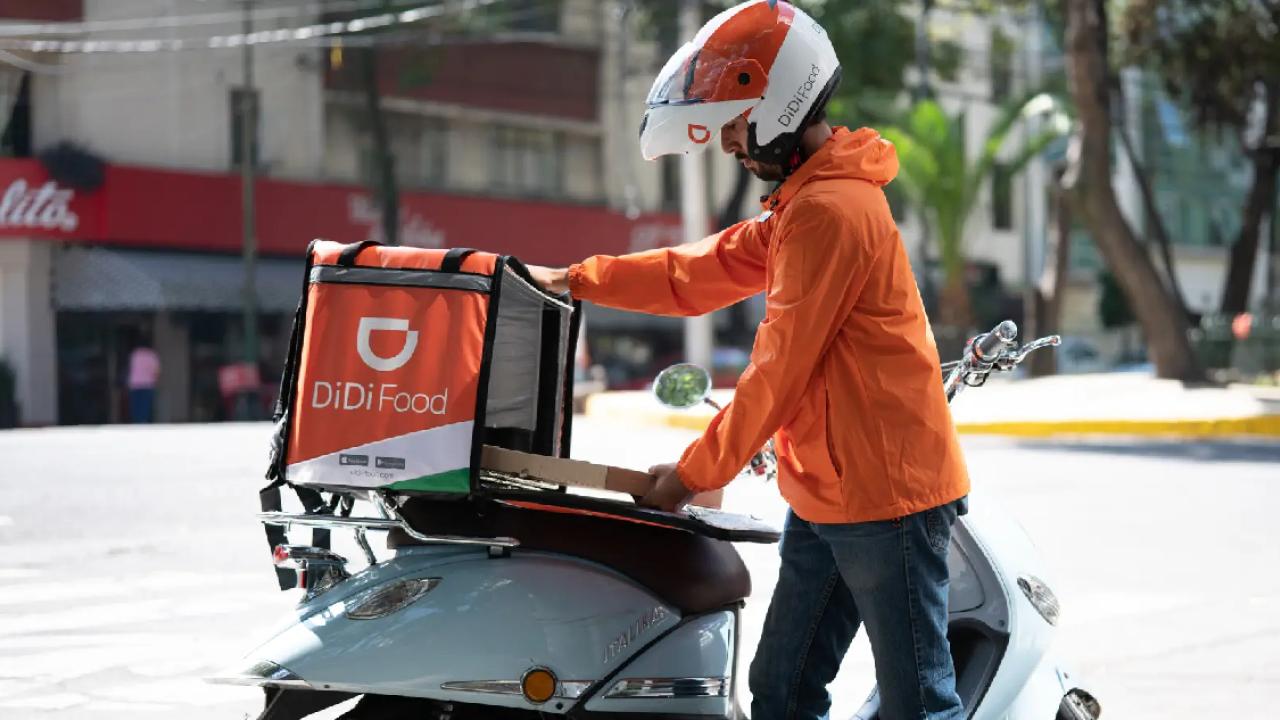
According to the experts consulted by AméricaEconomía, today, advertising campaigns and legal advice are positioned as key recipients of spending in the competitive quick commerce sector in Latin America. DiDi Food has been nothing more than confirmation of this trend.
“DiDi is an immense player that, although it has been in the food delivery space in Chile for less time than others, we believe it has great potential.” This is how Salvador Barros, co-founder of the Chilean e-commerce platform Kipp, summarized the expectations he had about the reach of the Chinese giant for AméricaEconomía in June 2022.
After thirteen months of operations, this month DiDi Food announced its departure from Chile, causing layoffs and great uncertainty in the quick commerce app market in the southern country. The abrupt end of DiDi Food leaves several doubts surrounding a Chinese transnational that upon arriving in Chile promised to add enough restaurants and delivery partners to provide a “world-class experience.” What separated these high expectations from reality? AméricaEconomía spoke with Marcel Goic, director of the Center for Retail Studies (CERET) of Industrial Engineering at the University of Chile about it.
Goic highlights that business success in mobile applications requires scale in several dimensions. “For the operation to operate correctly, a harmonious and sustainable growth of restaurants, delivery drivers and users of the application is needed,” he highlighted.
However, the resulting cost of growth is high, because it requires extensive advertising campaigns, especially in low-growth and highly competitive markets such as Chile.
“Considering that the last year the growth in platforms and electronic commerce has been relatively stagnant, a modest growth trajectory is to be expected and mainly at the expense of other relatively consolidated players,” adds the director of CERET.
Thus, faced with a panorama where growth is not guaranteed, quick commerce companies like DiDi are forced to focus their efforts on markets with greater possibilities of profitability and reach, such as Mexico or Brazil. “ In a growth scenario, perhaps it was possible to bear the cost of growth, but given the need to protect positions in larger markets, a rebalancing (reconsideration) of efforts may be justified,” explains Goic.
Along the same lines, Estephanía Ramírez, president of the Public and Regulatory Affairs Committee of the Peruvian Chamber of Electronic Commerce (Capece) , maintains that the delivery, last mile or quick-commerce markets imply greater investments in added value every day. In addition to advertising, the apps are forced to pay for legal advice (due to the controversy over the independent employees in charge of delivery). Finally, they must deal with the great price war that is experienced in already mature markets. “Didi's strategy was not very different from other apps . The main difference involved the price and entering first with DiDi Taxi, gaining a large database in populated areas such as the outskirts of Lima (Peru) or cities like Valparaíso (Chile),” explained Ramírez.
According to Capece's representative, DiDi's original plan in Chile was to fight with Rappi for market share. “The fight was based on going to a loss in an initial stage that, for companies like DiDi, has become eternal,” he maintains.
This downward trend would have been accompanied by a scenario where exclusive restaurant negotiations have become more expensive and companies tend to value their database more. On the other hand, Estephanía Ramírez believes that DiDi, being a Chinese holding company , operates in more conservative and pragmatic terms than other competitors such as Rappi. This would partly explain the sudden cessation of investments in the Chilean subsidiary of DiDi Food already in December 2022. Now, what would be the rivals' next move?
“The departure of DiDi Food may also imply a negotiation between the remaining players: there may be a transfer of the database in a message that will arrive close to its departure on August 8,” explains Ramírez, who gives an example of the withdrawal. of the Beat mobility app in 2022. Likewise, it rules out that in the Chilean case a transfer of shares such as the one carried out between Jokr and Intercorp in Peru will happen. “I don't think that will happen. DiDi is a culturally different company and unlike Jokr, it does not have its own fleet. If we look at the market, almost all delivery drivers work for all companies in the industry.”
For his part, Marcel Goic believes that DiDi Food's departure from the Chilean market will not have such a significant impact, except for one aspect. “In my opinion the greatest impact will be in the promotional dynamics. In this sense, incentives to attract restaurants, drivers and users could be more effective and provide some relief to a rather stagnant market in 2023,” he concluded. Be that as it may, the failure of DiDi Food in Chile reflects a new rupture in the belief that quick commerce apps are as adaptable to each market as the possibilities that technology offers for delivery of all kinds.
Also read:
What's behind the launch of quick-commerce apps in Latin America?









